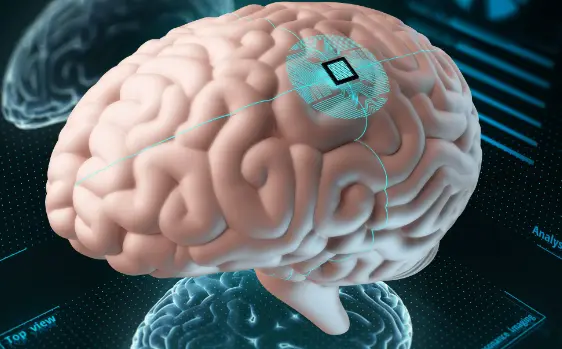What Brain Implants Are and How They’re Shaping Our Future
The human brain, that enigmatic three-pound organ, has captivated scientists and philosophers for centuries. Now, with advancements in neuroscience and technology, we’re on the cusp of a new era – the era of brain implants. But what exactly are brain implants, and how will they impact our lives? This blog dives into the world of brain implants, exploring their functionalities and the potential they hold for the future.
What is a Brain Implant?
A brain implant is a medical device surgically placed within the brain. These implants can interface with neural tissues in various ways, depending on their purpose:
-
Neurostimulation: Some implants use electrical pulses to stimulate specific brain regions. This can be used to treat neurological disorders like Parkinson’s disease or epilepsy.
-
Neural Recording: Other implants record electrical activity within the brain. This data can be used to understand brain function or even control external devices with thought commands.
Brain Implants: Applications and Potential Benefits
Brain implant technology holds immense promise across various fields:
-
Treating Neurological Disorders: As mentioned earlier, brain implants offer new avenues for treating neurological disorders like Parkinson’s disease, epilepsy, and depression. By stimulating specific brain regions, these implants can help regulate abnormal neural activity and alleviate symptoms.
-
Restoring Lost Function: Brain-computer interfaces (BCIs) – a type of brain implant – can help restore lost function in individuals with paralysis or limb loss. By deciphering neural signals, BCIs allow users to control prosthetic limbs or assistive devices with their thoughts.
-
Augmenting Human Capabilities: The concept of “human augmentation” sparks both excitement and debate. Brain implants could potentially enhance memory, focus, or even sensory perception. However, the ethical implications of such advancements require careful consideration.
The Impact of Brain Implants: A Double-Edged Sword
While the potential benefits of brain implants are undeniable, there are significant challenges and ethical considerations to address:
-
Safety Concerns: Brain surgery is a complex procedure, and any implant placed within the brain carries inherent risks of infection, bleeding, or damage to neural tissue.
-
Privacy Issues: Brain implants can collect a vast amount of neural data, raising concerns about privacy and potential misuse of this information. Robust data security measures and clear regulations are crucial.
-
Ethical Dilemmas: The concept of human augmentation with brain implants presents a complex ethical landscape. Questions arise about fairness, equity, and the potential for a cognitive divide between those who can afford such enhancements and those who cannot.
The Road Ahead: Responsible Development and Integration
Brain implant technology is still in its early stages. Extensive research, clinical trials, and open discussions are necessary before widespread adoption. Here’s what we can expect as the field evolves:
-
Advancements in Materials and Design: Newer biocompatible materials and miniaturized implant designs will lead to safer and more effective brain implants.
-
Improved Brain-Computer Interfaces: BCIs will become more sophisticated, allowing for more natural and intuitive control of external devices.
-
Focus on Ethical Frameworks: Global discussions and regulations will be established to ensure the responsible development and use of brain implant technology, prioritizing safety, privacy, and ethical considerations.
Brain implants represent a groundbreaking frontier in human-technology interaction. While the technology holds immense promise for healthcare, communication, and potentially even human augmentation, the ethical considerations and potential risks cannot be ignored. Moving forward, responsible development, open communication, and a focus on human well-being will be paramount in navigating this exciting and complex new era.


Comments are closed, but trackbacks and pingbacks are open.